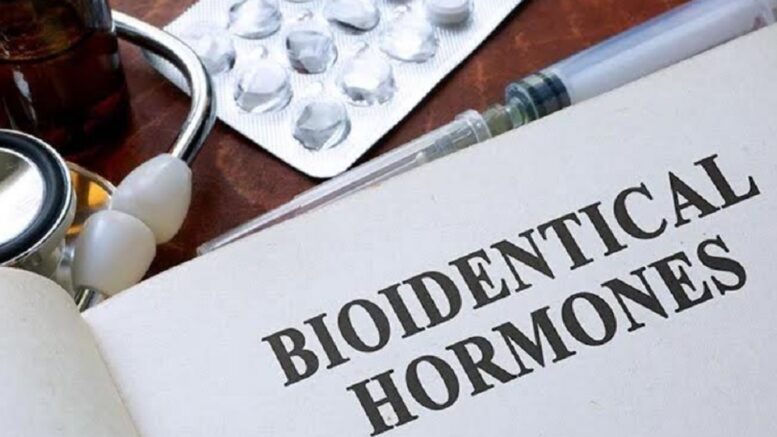The human body is a complex machine. There are many systems within us that come together to allow us to perform the various tasks that we wish to. The brain, nervous system, and of course the vital organs all play a major part in daily life. In fact, we take for granted the simple things such as the brain being able to tell me – right now – which buttons to press to write these words!
In addition to the systems described above plus our skeleton, skin, and limbs, there are less obvious materials involved in regulating our body’s performance. We’re here to talk about hormones – and more specifically about bioidentical hormones – and why they are important. What role do hormones play, and why is an imbalance a potential problem? We want to begin by explain the purpose of hormones, and how they affect our daily lives.
What Do Hormones Do?
Put simply, hormones are the messengers of the nervous system. There are many hormones in our bodies, and they differ in women and men. The famous ‘male hormone’ is testosterone. Immediately, you think of sex and sexual performance. Testosterone is indeed associated with sexual performance, but it is much more than that – and we’ll come back to that later.
The opposite, the female hormone if you like, is estrogen. This is also a sex hormone, but also much more besides. Hormones such as these – and there are many more, insulin being one for example – regulate certain processes in the body and are stimulated by messages from the brain through the nervous system. For example, when a man becomes sexually aroused, the instruction is sent to the testes to produce more testosterone, and to the bloodstream to supply blood to form an erection.
That’s just one example of an instantaneous hormonal response. That’s a basic explanation of what hormones are all about, and next we need to look at why the amount of hormones – the balance – is important to our health and wellbeing.
Does Hormonal Imbalance Just affect Women?
It’s often mistakenly believed that only women suffer from hormonal imbalances. It is true that only women go through the phase of hormonal change known as menopause, yet men also experience changes in hormonal production rates as they grow older.

Menopause is the period during which the female reproduction system reaches the end of its working life. Ovulation no longer occurs – usually when a woman is in her 40’s – and the massive boost in estrogen that comes with ovulation is no longer experienced. We’ll go into greater detail about how this can affect the individual involved shortly.
In men, there is a similar change that is known as andropause. This is mistakenly often referred to as the ‘male menopause’ yet it is not the same thing. Put simply, as a man ages, so he gets further away from his sexual peak. Testosterone is not being produced at such rates as before, so he experiences changes that can be somewhat similar to those in a woman during menopause.
However, it is important to note that while all women – except in truly exceptional circumstances – will experience menopause, only some men will undergo andropause. For most, it will simply manifest as a lack of sex drive and generally feeling older and less inspired to be active.
How Can I Tell if I Have a Hormonal Imbalance?
The tell-tale signs of hormonal imbalance include – but are not limited to – the following:
- Reduce sex drive
- Anxiety and depression
- Inability to get an erection
- Reduced focus and mental clarity
- Loss of bone density
- Weight gain
- Unusual fatigue
- Difficulty sleeping
- Hot flushes
Women who have experienced the menopause will be familiar with many of the above, and men will also recognize some of the symptoms. These occur because while estrogen and testosterone are, as mentioned, associated with sexual performance, each is also influential in the area of cognitive performance, bone development, and growth. So, what are bioidentical hormones and why are they important in hormone replacement therapy (HRT?)
What are Bioidentical Hormones?
Bioidentical hormones are a relatively new addition to the world of hormone replacement therapy. Before this type of hormone was devised, HRT used synthetic hormones. These were derived from various substances, including the urine of pregnant horses. Now, while effective in most cases, synthetic hormones are not always so. This is because synthetic hormones are mass produced and every patient is an individual. Thus, while synthetic hormones may have a great effect on one individual, they may have none on another.

Bioidentical hormones are as the name implies – they are custom made to match the hormones in the body that they will place. That is, made to match each individual patient’s hormone. They are chemically the same, and identical on a molecular level. Bioidentical hormones are made from plant materials, hence are far safer than synthetic hormones.
What Difference Will HRT Make to My Life?
A lot of difference! Many women, and some men, undergo HRT so that they can move away from the lingering symptoms that we’ve listed above. They also do so as they want to continue enjoying a healthy sex life in their later years. HRT helps revitalise energy and puts the life back into your day. You’ll start to feel a great deal healthier, more enthusiastic, and more like your old self when you are treated with bioidentical hormones. You’ll also enjoy better sleep, and get back into your older, healthier routine. How do you go about signing on for HRT? Let’s have a few final words.
The First Step to HRT
If you believe you are suffering a hormonal imbalance you should talk to a doctor for a diagnosis. You can also contact a clinic such as the one we linked to for advice, and they will arrange a consultation. We hope this article has helped you understand that bioidentical hormones are the future of HRT, so talk to the professionals now and they’ll help you find the way forward.
